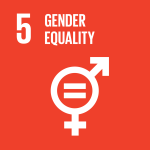
11 April 2022, Dhaka - The United Nations Development Programme (UNDP) organised a workshop titled ‘Mainstreaming Gender into the National Adaptation Plan (NAP)’ on 10 April 2022. It was organised as part of the formulation of the NAP. The Ministry of Environment, Forest and Climate Change (MoEFCC) is implementing the Formulation and Advancement of the National Adaptation Plan (NAP) in Bangladesh project with support from the UNDP and funded by the Green Climate Fund (GCF).
Around 40 participants from government ministries, development partners, NGOs and academics attended the workshop. They were divided into three groups that discussed gender-sensitive adaptation approach, NAP implementation strategy and gender-sensitive monitoring and evaluation.
Ms Keya Khan, Additional Secretary (EPC), MoEFCC attended the workshop as the Chief Guest while Ms Mahsin Hamuda, Monitoring and Evaluation Officer, NAP Project, UNDP facilitated the workshop. Mirza Shawkat Ali, Director (Climate Change & International Convention), Department of Environment and Deputy Project Director, NAP Formulation Project Chaired the workshop.
Welcoming the participants, Mr S M Mahbub Alam, Deputy Secretary, ERD (UN-5 Branch) and DPD of the NAP Formulation Project said that mainstreaming gender in the NAP was very important as the women were more affected by climate change. He added that addressing gender inequality through the lens of climate justice was crucial to understanding the broad gender dimensions of climate change.
While making the presentation Ms Jarin Tasneem Oyshi, Senior Research Associate, C3ER, Brac University said that climate change impacts women and men differently depending on their vulnerability and adaptive capacity. She identified social norms, and structural differences between women and men based on their gender-specific roles in social, economic, and domestic life; social status; access to finance, control and ownership over assets and resources influence the degree of vulnerability and adaptive capacity of the women. Furthermore, age, ethnicity, class, and religion also affect their adaptive ability, she added.
Ms Sharmin Islam, Gender Analyst, UNDP suggested, “the NAP needs to adopt a transformative approach in integrating gender in development planning that will ultimately contribute to achieving gender equality”. She also emphasized addressing intersectionality so that no one in society is left behind in gender mainstreaming.
Mr A K M Azad Rahman, Programme Specialist a.i., RIG Cluster, UNDP said, “the NAP will give special emphasis to reducing the growing inequality.” “Considering present risk scenario of climate change, NAP will specifically address the needs of the women, marginalised and vulnerable groups that will try to arrest inequality.” He added.
Ms Keya Khan said, “We need to think beyond conventional approaches of gender mainstreaming. Without changing the social norms, project interventions are likely to bring limited and temporary benefits to the women”. “Our adaptation efforts should ensure that women have access to finance and that they are the primary beneficiary of interventions made through such finances.” She added.
In concluding the session, Mirza Shawkat Ali said, “As gender is a cross-cutting issue in the climate change adaptation, we will formulate a gender-inclusive NAP”. He thanked the participants for their thoughtful recommendations and ensured that these will be incorporated into the NAP.
There is ample evidence that climate change impacts often affect women and men differently. Therefore, the NAP is paying special attention to gender sensitivities regarding the impacts of climate change and adaptation interventions.
Bangladesh has already developed the draft NAP which is now being validated at different stages involving the public and private stakeholders. The final NAP will propose participatory and gender-sensitive adaptation measures, to promote gender inclusion, equality, and equity.
***
For more information, please contact Md Mijanur Rahman, Project Manager, NAP, UNDP Email: md.mijanur.rahman@undp.org Cell: 01711236182 and Meer Ahsan Habib, National Consultant, CCA Communications Specialist, UNDP, Email: meer.habib@undp.org Cell: 01713244341, Formulation and Advancement of the National Adaptation Plan (NAP) Process in Bangladesh.


